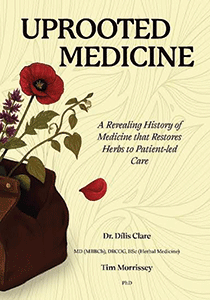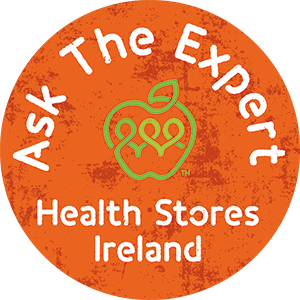Rude Health News & Events
The latest news, research and events from the world of natural health

Study raises further concerns over ultra-processed foods
Ultra-processed foods (UPFs) are rapidly replacing fresh and minimally processed meals around the world, according to a major three-paper series in The Lancet. The evidence links the increasing consumption of UPFs to poorer diet quality and higher risks of several chronic diseases.
The authors note that although more research on UPFs will add to our understanding of them, the existing science is already strong enough to warrant immediate public health action. Delaying would simply allow UPFs to become even more entrenched in global diets. The series emphasises that improving diets cannot rest on individual choices alone. Meaningful progress requires coordinated policies that curb the production, marketing and availability of UPFs; address the high levels of fat, sugar and salt in the food supply; and expand access to healthier options.
The authors describe UPFs as products of an industrialised food system driven more by corporate profit than by nutrition or sustainability. They warn that only a unified international effort can counter the political influence of UPF companies which continues to be the biggest barrier to effective dietary policy reform.

Marathon effort
This is the last of Rude Health editor Liz Parry’s Dublin marathon training diary – and sadly it’s not the update she wanted to write
So, this is the last of my diary entries about my training regime for Dublin marathon.
I started these updates exactly a year ago, full of enthusiasm for my training and hoping to achieve a personal best, having run Dublin twice before, back in 2016 and 2017.
Everything started well last January, as I initially focused on heart rate training and building up my cardiovascular fitness. A niggling pain in my foot flared up and I sought help from a physio who gave me exercises to remedy the problem. On I continued, throughout the summer months and some very hot temperatures. The pain came and went, but I completed my training, including my longest run of 20 miles. Then, just days before I was due to leave for Dublin, I developed a nasty cold. Panicking, I raided my local health food store for every immunity-supporting remedy I could get my hands on. The cold had other plans though. It soon developed into flu and a hacking cough, leaving me shivering and sweating under the covers in bed. There was no way I could walk down the road, let alone run for 26 miles. So, after a year’s worth of training, I was forced to pull out of Dublin marathon at the last minute. I was absolutely devastated. I’d feared that the injury might set me back, but I hadn’t foreseen that I would be taken down by the flu.
I’m sorry that my last update is a rather sad one. I’d been hoping to bring you an exciting race report, alongside a picture of me with my medal. But it wasn’t meant to be. Would I train for another marathon? I’m not sure right now. There’s a huge amount of commitment involved, and intense training can take its toll on the body, as I’ve found out to my cost. This chapter didn’t end the way I’d hoped, but I’m leaving the door open, quietly, for whatever comes next.
Liz

New book champions collaborative medicine
A new book by one of Ireland’s leading herbal medicine experts is set to spark fresh discussion about the role of herbal medicine in modern healthcare. Uprooted Medicine, co-authored by physician-herbalist Dr Dilis Clare, Clinical Director of Dr Clare’s Apothecary in Galway, and researcher Dr Tim Morrissey, explores why herbal medicine remains outside the mainstream despite centuries of use and a strong evidence base.
The book provides an overview of the history of medicine from ancient times up to the 2020s, offering a fresh perspective on many aspects. The resultant narrative strongly supports the notion of ‘collaborative medicine’.
The authors hope that Uprooted Medicine will help readers to feel more informed about their healthcare choices and will prompt open-minded conversations across the medical world. They also aim to reassure qualified herbal and natural health practitioners that their work offers real value to patients. For more information, visit www.joinedupmedicine.com

Health Stores Ireland launches new campaign
On the back of a recent consumer poll, which reported that over 70% of respondents trusted health food stores with advice and products to benefit gut health, independent expert run shops around Ireland will be participating in a new Gut Health Matters campaign which will run from January to June 2026.
The aim of the campaign is to highlight the importance of gut health as the core of wellbeing and to remind consumers that expert advice and cutting-edge products are available from your local independent health food store. Linking wholefood diets (organic veg, brown rice, pulses, nuts and seeds) with innovative food supplements, fermented foods and drinks, probiotics and digestive enzymes, the campaign will highlight the unique role that health food stores play in helping to maintain good digestive health and overall wellbeing.
Erica Murray, president of Health Stores Ireland, said: “There’s a century of tradition, from the early days of traditional fibre foods right up to cutting-edge science gut-brain connection supplements and medicinal mushrooms, where modern health stores offer bespoke solutions for optimal consumer health.”
Consumers can expect themed special offers, tastings and new product launches, supported by trusted suppliers and brands. Look out for further information in upcoming editions of campaign partner, Rude Health magazine, and follow #passionsupplychain on social media.

Research highlights heart-healthy foods
Regular consumption of foods and drinks rich in polyphenols, such as tea, coffee, berries, cocoa, nuts, whole grains and olive oil, may significantly support long-term heart health.
A team from King’s College London reported that individuals who followed dietary patterns high in polyphenols had lower predicted cardiovascular disease (CVD) risk. Polyphenols are naturally occurring plant compounds associated with a wide range of health benefits, including support for the heart, brain, and gut.
The study, published in BMC Medicine, tracked more than 3,100 adults from the TwinsUK cohort for more than ten years. It found that diets rich in certain groups of polyphenols were linked to healthier blood pressure and cholesterol levels, which contributed to lower CVD risk scores.
Dr Yong Li, first author of the study, said: “This research provides strong evidence that regularly including polyphenol-rich foods in your diet is a simple and effective way to support heart health. These plant compounds are widely available in everyday foods, making this a practical strategy for most people.”
January events
Festival Mná
3 January, Dún Na Sí Amenity & Heritage Park, Lake Road, Moate
festivalmna.com
Veganuary
The go vegan 31-day challenge
veganuary.com
Find more natural health events here...
Sign up for our e-newsletter here and get your favourite health read delivered direct to your inbox